What Is Chemical Warehousing?
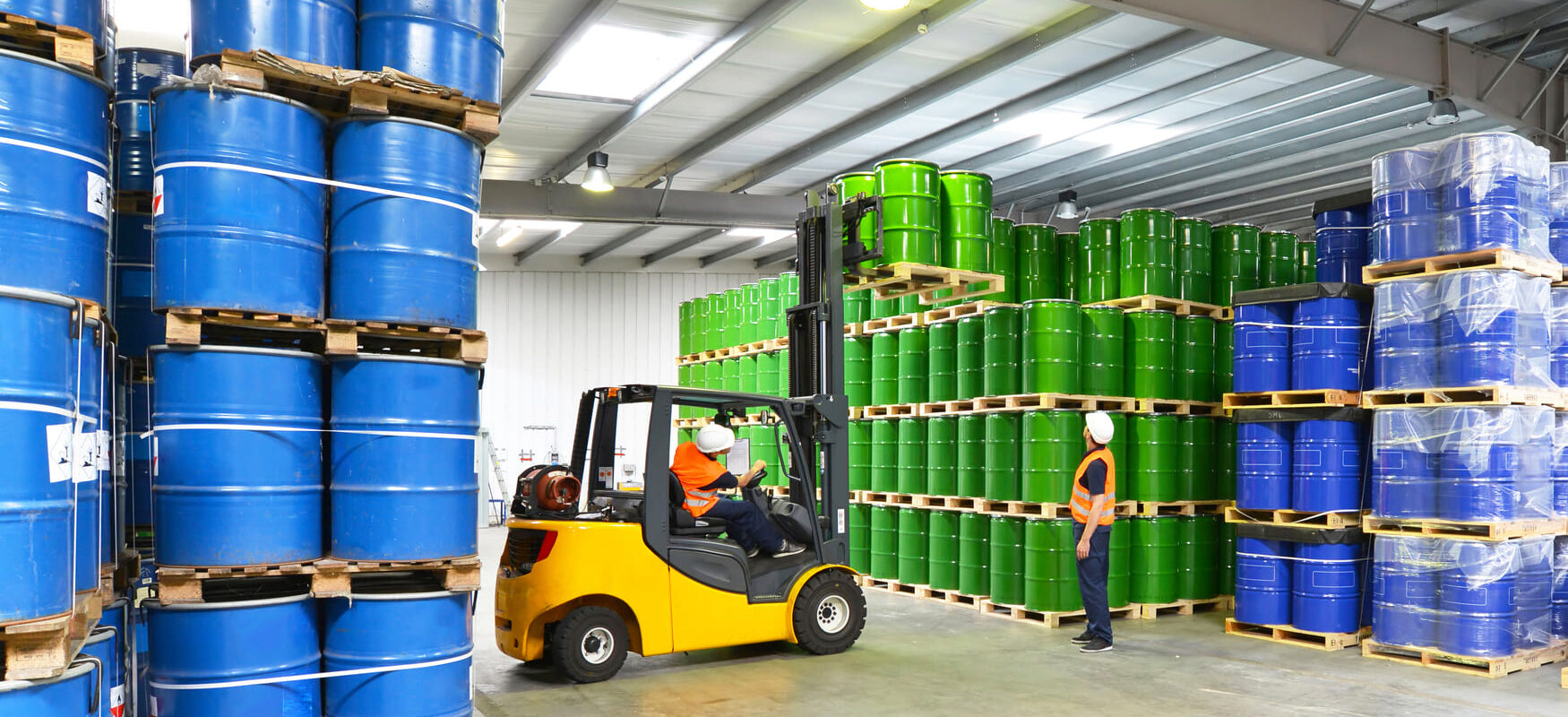
Chemical warehousing, also called hazardous materials (hazmat) warehousing, refers to specialized storage of chemicals and other dangerous goods under strict safety and regulatory controls. These facilities are designed to prevent accidents by separating incompatible substances and meeting robust compliance standards. Chemical warehousing is a highly regulated undertaking involving substantial investment in physical safeguards and rigorous adherence to associated protocols. In practice, such warehousing ensures that chemicals are handled, stored, and transported without posing risks to people or the environment. Facilities may range from small fireproof cabinets to large dedicated warehouses, but all must follow precise procedures to manage hazards.
Types of Chemical Warehouses
Chemical warehouses come in several types to suit different logistics needs. Common categories include:
- Dedicated chemical warehouses: Specialized facilities designed exclusively for certain chemicals or hazard classes. They feature advanced ventilation, spill containment and fire protection (e.g. sprinkler systems), and often allow only one chemical class at a time. This focused design “minimizes physical hazards” and ensures compliance with safety standards.
- Multipurpose warehouses: Versatile facilities that store multiple types of chemicals and other goods. They have adaptable systems (e.g. adjustable shelving, modular ventilation) and protocols to safely handle diverse products. Multipurpose sites suit businesses with varied chemical inventories, providing flexible storage while maintaining safety controls.
- 3PL (Third-Party Logistics) chemical facilities: Outsourced hazmat warehousing run by specialized logistics providers. These 3PLs handle the storage, repackaging, and distribution of hazardous materials on behalf of manufacturers or importers. They maintain certified systems and expertise to ensure full compliance. As inbound Logistics explains, 3PL chemical warehouses offer “advanced security measures” and even value-added services like hazardous packaging and transportation, providing an efficient, all-in-one solution.
- Cold-storage warehouses: Climate-controlled facilities for temperature-sensitive chemicals. These have high-quality insulation and precise refrigeration or humidity controls to keep products stable (e.g. certain solvents or agrochemicals). By maintaining low temperatures, cold warehouses prevent chemical degradation or unwanted reactions.
- Hazardous materials (hazmat) storage buildings: Highly specialized sites for the most dangerous chemicals (explosives, oxidizers, poisons). They feature state-of-the-art fire suppression (e.g. foam systems), secondary containment (bunds or sumps), and strict security. Such structures comply with codes like NFPA and OSHA for handling flammables, corrosives, and toxic gases.
Each type follows regulatory guidelines (OSHA, NFPA, DOT, etc.) tailored to the hazards involved. For example, dedicated warehouses may strictly segregate incompatible chemicals, while multipurpose or 3PL facilities rely on zoned layouts and mobile partitions to keep hazards apart. In all cases, choosing the right warehouse type depends on the volume, hazard classes, and handling requirements of the chemicals, as well as the need for integrated services like packaging and transportation.
Key Regulations for Chemical Storage Compliance
Chemical and hazmat warehousing is governed by rigorous standards and laws. In the U.S., key regulators include OSHA, EPA, DOT and even DHS (through CFATS). For example, OSHA’s Hazard Communication Standard (HCS) requires that all chemical hazards be clearly identified via labels and Safety Data Sheets (SDS), and that warehouse employees receive proper training on these hazards. The EPA’s hazardous waste rules further dictate how chemicals must be stored, contained, and disposed of, influencing warehouse design (e.g. spill berms, ventilation).
Among specialized requirements, facilities storing certain quantities of regulated chemicals fall under CFATS (Chemical Facility Anti-Terrorism Standards). CFATS, managed by DHS/CISA, covers any site holding one of the 300 “Chemicals of Interest.” If applicable, the warehouse must implement security measures (access controls, monitoring) and undergo periodic reviews. Additionally, DOT hazmat regulations classify chemicals into nine hazard classes (from explosives and gases to corrosives and toxic wastes), which dictate packaging, labeling, and storage conditions. International standards (IATA/IMO codes for air/sea transport) may also apply if the warehouse coordinates export/import.
Fire and building codes are equally important. For instance, OSHA cites NFPA 30 (Flammable and Combustible Liquids Code) for storage limits. As one industry source notes, OSHA limits flammable liquids to 60 gallons (or 120 gallons for combustible liquids) per storage cabinet or room. In practice, this means the warehouse must use fire-rated containers/cabinets and may need sprinkler protection for larger volumes. OSHA 29 CFR 1926.152 is another cited standard, covering flammable storage during construction/renovation. Many chemical warehouses therefore equip rooms with automatic sprinklers, explosion-proof lighting, and specialized ventilation to comply with NFPA/OSHA criteria.
In summary, chemical warehousing standards blend OSHA’s hazard communication, EPA waste rules, DOT hazmat codes, CFATS security measures, and NFPA fire codes. Compliance is enforced via regular audits by fire departments, environmental agencies, and transportation regulators. Warehouses often maintain certifications (e.g. C-TPAT for secure supply chains) and undergo annual inspections to stay audit-ready.
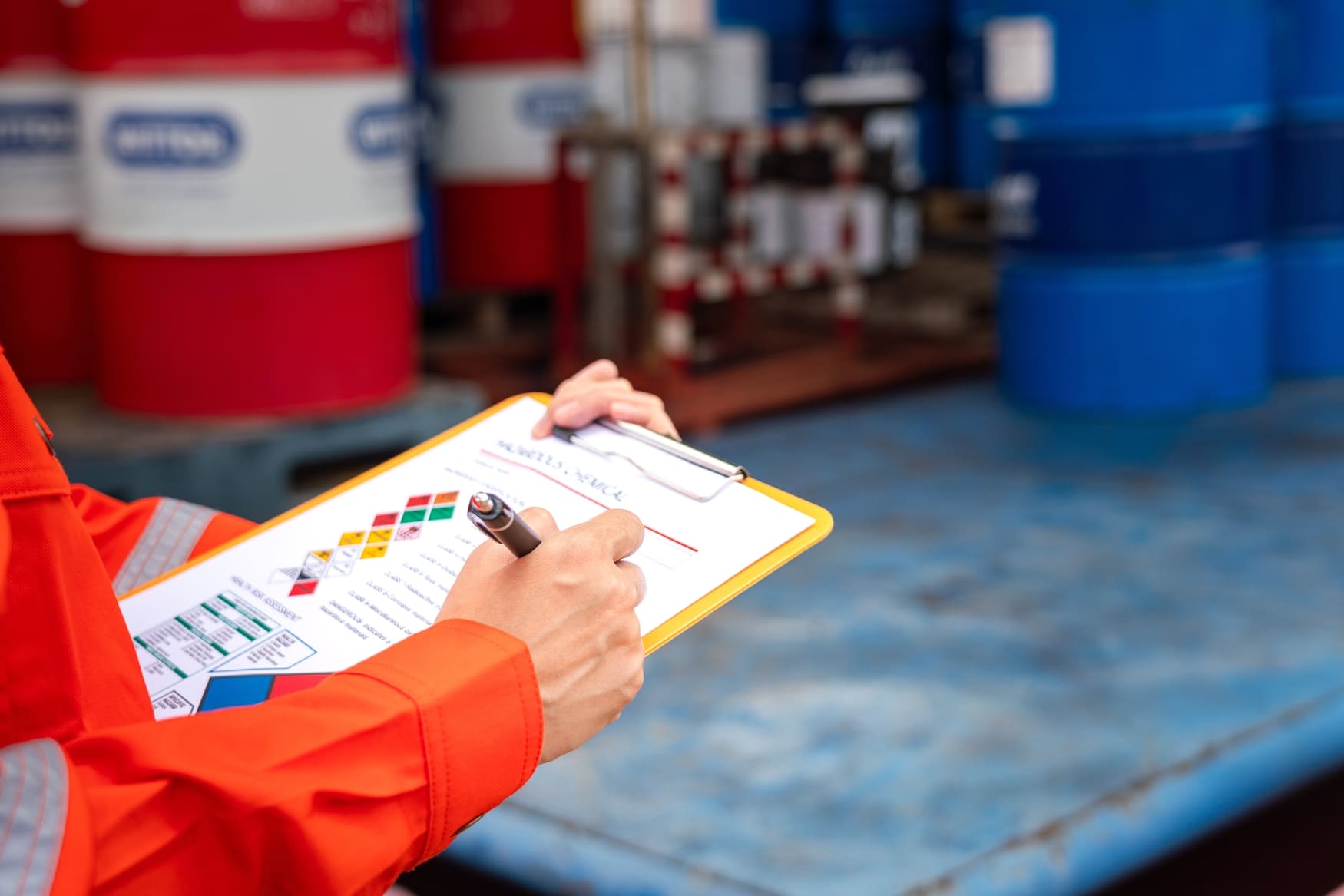
Types of Hazardous Materials
Before storing hazardous materials, it’s essential to understand the different types and classifications. Common categories include:
- Flammable Liquids: Such as gasoline, alcohol, and acetone.
- Corrosives: Including acids and bases like sulfuric acid and sodium hydroxide.
- Toxics: Substances that can cause harm if ingested or inhaled, like pesticides.
- Compressed Gases: Such as propane and oxygen tanks.
- Oxidizers: Materials that can cause or enhance combustion, such as hydrogen peroxide.
Each type of hazardous material requires specific storage conditions to mitigate risks effectively.
Hazmat Warehouse Design & Requirements
A compliant chemical warehouse must meet strict design and operational criteria. Key requirements include:
- Facility Construction: Use fire-resistant materials and reinforced structures. Walls, floors, and doors should resist chemical spills and fires. For example, hazmat buildings often have welded steel seams, sealed concrete floors with curbs (bund walls) of at least 12 inches height to contain spills. High-risk rooms (for corrosives or poisons) need dedicated ventilation that exhausts fumes safely outside the building. Doors and vents must be fire-rated, and emergency eyewashes or showers should be installed in corrosive areas.
- Quantity Limits: Adhere to mandated storage quantities per room or container. As noted above, OSHA/NFPA caps flammable liquids to 60 gallons in a single container (or 120 gallons for higher flash-point liquids). Total amounts of combustible liquids of Class IB, IC or IIIA must also not exceed 1,585 gallons in a single fire area. Similar limits exist for other classes (e.g. NFPA 400 sets maximums for oxidizers and organic peroxides). Warehouses must document these limits and often split large inventories into multiple fire-rated rooms or storage units.
- Segregation of Chemicals: Incompatible substances must be physically separated. For instance, oxidizers cannot be stored near organics or flammables, and acids away from bases. This usually means using separate rooms or barricades between classes. A practical rule-of-thumb is a 20-foot separation or non-combustible barriers between different hazard classes. Within the same class, certain chemicals may also need isolation (e.g. nitric acid vs organic acids). Warehouse operators often follow SDS (Safety Data Sheet) guidance and national chemical compatibility charts when planning the layout.
- Placement and Handling: Always store containers on stable shelves or racks, preferably at or below eye level. This reduces the risk of accidents when retrieving containers. Heavy drums and totes remain on lower racks; smaller bottles on upper shelves. All containers must be clearly labeled and kept closed when not in use. Loading/unloading areas should have spill kits on hand, and forklifts used in flammable areas must be spark-free types. Warehouse staff receive training on using personal protective equipment (PPE) like goggles and gloves when handling hazardous materials.
- Spill and Fire Protection: Secondary containment (spill basins or dikes) under bulk storage areas is essential to capture leaks. Automated fire suppression systems – such as sprinklers rated for chemical fires – are typically installed throughout. Many chemical warehouses also have gas leak detectors, alarm systems, and pre-planned evacuation routes. Emergency procedures (spill cleanup, fire response) are formalized in facility manuals. Some facilities even design “safe rooms” or shelters if toxic releases are a risk.
These requirements ensure that, in the event of a leak, spill or fire, the hazard is contained and managed without affecting adjoining areas or workers. For example, strict corrosive storage standards mandate ventilated rooms with sealed floors, which keep dangerous vapors out of common areas. Likewise, flammable storage areas often feature flame arrestors on vents and are kept cool and dry. Altogether, meeting hazmat warehouse requirements involves careful planning of every square foot of the facility.
Hazmat Warehousing Services and 3PL Considerations
Many companies opt to outsource their hazmat warehousing to specialized 3PL providers. These partners not only supply space but also offer comprehensive chemical warehousing services. Typical hazmat warehouse services include: inventory management of regulated chemicals, re-packaging into approved containers, labeling, and coordination with hazmat transportation. 3PL chemical warehouses even handle packaging and transport services, offering a turnkey solution. In practice, a good hazmat 3PL will have:
- Certifications and Audits: The facility should be officially certified for hazmat storage (by state fire marshals or EPA), as “no warehouse…can handle hazardous material storage” without this. Ask providers about licenses (e.g. EPA ID, state hazmat permits) and their audit history with OSHA, DOT, or local fire authorities.
- Chemical Expertise: Experienced staff who understand chemical properties and SDS details. They can advise on segregation, safety limits, and emergency actions. Warehouses often employ trained chemists or safety officers to manage classes and write site safety plans.
- Integrated Transportation: Many logistics providers couple warehousing with hazardous material trucking. They arrange for drivers with Hazardous Materials Endorsements and trucks equipped for the goods (e.g. placarded tankers, temperature-controlled vans). Integration ensures seamless transfer from warehouse to truck under continuous compliance.
- Value-Added Services: Beyond storage, some warehouses offer testing, blending, or order kitting of chemical products. Others provide just-in-time delivery or 24/7 emergency response. Highlighted in industry resources, leading 3PLs maintain secure inventory systems and may even assist with regulatory filings (such as CFATS Top Screen submission) on behalf of shippers.
By choosing a seasoned hazmat warehousing 3PL, chemical companies benefit from expertise and risk mitigation.
Best Practices for Chemical Storage
In addition to meeting formal requirements, successful hazmat warehouses follow industry best practices to prevent incidents:
- Chemical Classification & Inventory: Maintain an up-to-date inventory system that tracks every product by hazard class. Proper classification (flammable vs. oxidizer vs. toxic, etc.) is essential. This ensures the right safety measures for each item. Use barcode/RFID systems to log incoming shipments and flag when chemicals approach storage limits. Effective inventory management was highlighted as “crucial for tracking chemicals” in order to use space efficiently and avoid surprises.
- Segregation and Layout: Design the warehouse with clear zones for each class. Use colored floor markings or signage to delineate flammables, corrosives, toxics, etc. Automated racks or physical cages can further isolate materials. Rotate stock using FIFO (first-in, first-out) to minimize degradation. Regular housekeeping (clean spills promptly, check for leaks) is equally important. The Weber guide notes that preventing “cross-contact” between chemicals is vital – for example, acids should never be near bases or organic materials.
- Emergency Preparedness: Develop and drill a robust emergency response plan. This includes fire drills, spill response procedures, and evacuation routes specific to chemical incidents. Train staff in using spill kits, neutralizing agents, and fire extinguishers. Keep Material Safety Data Sheets (MSDS/SDS) readily accessible for every chemical, as required by OSHA. Inbound Logistics advises thorough preparation – employees should know procedures for fires, explosions, leaks, or medical emergencies involving chemicals.
- Technology & Training: Use safety monitoring tools like gas detectors, temperature sensors, and CCTV to get real-time alerts. Automated material handling (e.g. robotic forklifts) can also reduce human error in sensitive areas. Regular employee training and certification refreshers help maintain a safety culture. Every worker should recognize hazard labels, PPE requirements, and the location of emergency gear. Ongoing audits and third-party inspections further ensure that procedures keep pace with changing regulations.
- Environmental Controls: Many chemicals require specific climate conditions. Control temperature, humidity, and static (via grounding) in storage zones. Use ventilation to keep vapor levels low and airflow consistent. Maintain complete records of storage conditions – some states (e.g. California) have exposure limits even tighter than federal ones, so compliance may depend on environmental monitoring.
Adhering to these best practices not only protects employees and assets, but also boosts efficiency. It can reduce insurance costs and downtime from accidents. In short, a proactive safety culture is as important as hardware and procedures.
What are the core requirements for safely storing chemicals in a warehouse?
To safely store chemicals in a warehouse, facilities must follow strict regulatory requirements including OSHA and NFPA standards. This involves limiting storage quantities (e.g., 60 gallons for flammables per cabinet), using leak-proof containers on stable, eye-level shelving, ensuring proper ventilation and fire protection systems, segregating incompatible substances with physical barriers, and maintaining accurate labeling and up-to-date Safety Data Sheets (SDS). Staff must be trained in handling hazardous materials and emergency response procedures. These practices reduce the risk of accidents, regulatory violations, and environmental hazards.
You may be interested in
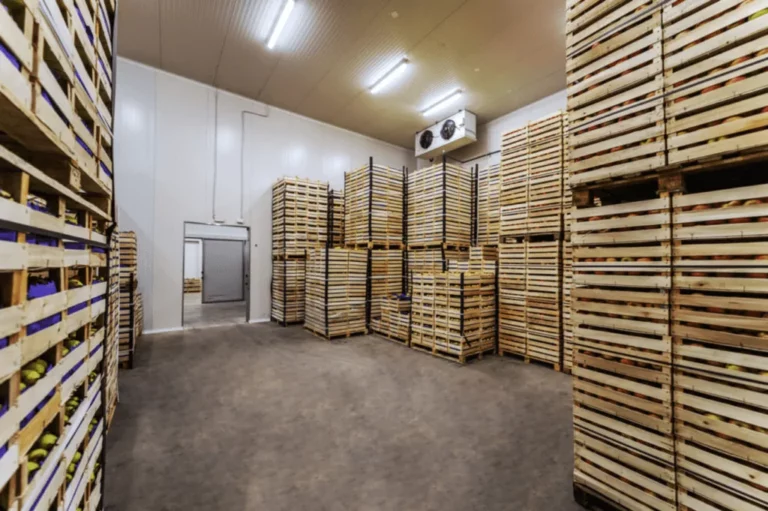
What Is Cold Storage Warehousing? A Guide to Refrigerated & Freezer Warehouses
Cold storage warehouses, also known as refrigerated warehouses or freezer warehouses, are specialized facilities designed to hold perishable goods at controlled temperatures. These heavily insulated warehouses use industrial HVAC and refrigeration systems to keep environments cool or below freezing, extending the shelf life of items ranging from fruits and vegetables to meats, dairy, and sensitive […]
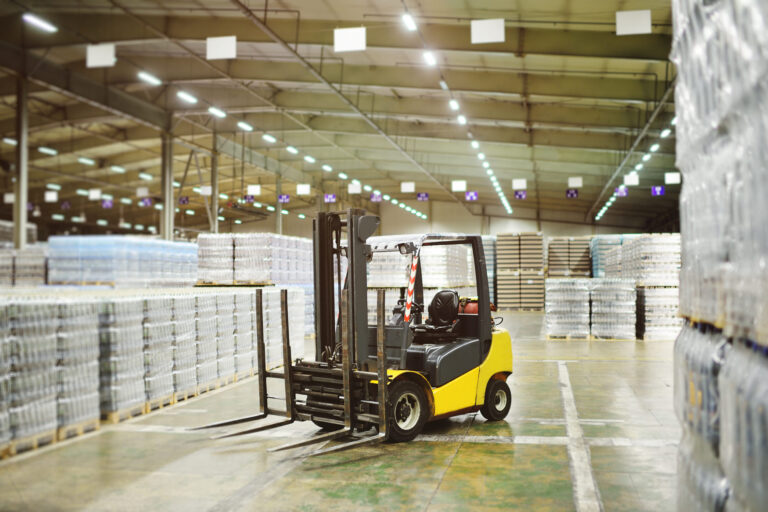
Food Warehousing and Food Grade Warehousing: Challenges and Solutions
Operating a warehouse that stores food requires specialized handling beyond standard warehousing. Food-grade facilities must meet strict sanitation, temperature control, and traceability standards to prevent contamination and spoilage. In fact, “food-grade warehousing is crucial for maintaining product quality, ensuring consumer safety, and complying with industry regulations.”. By upholding these standards, food warehouses become the critical […]
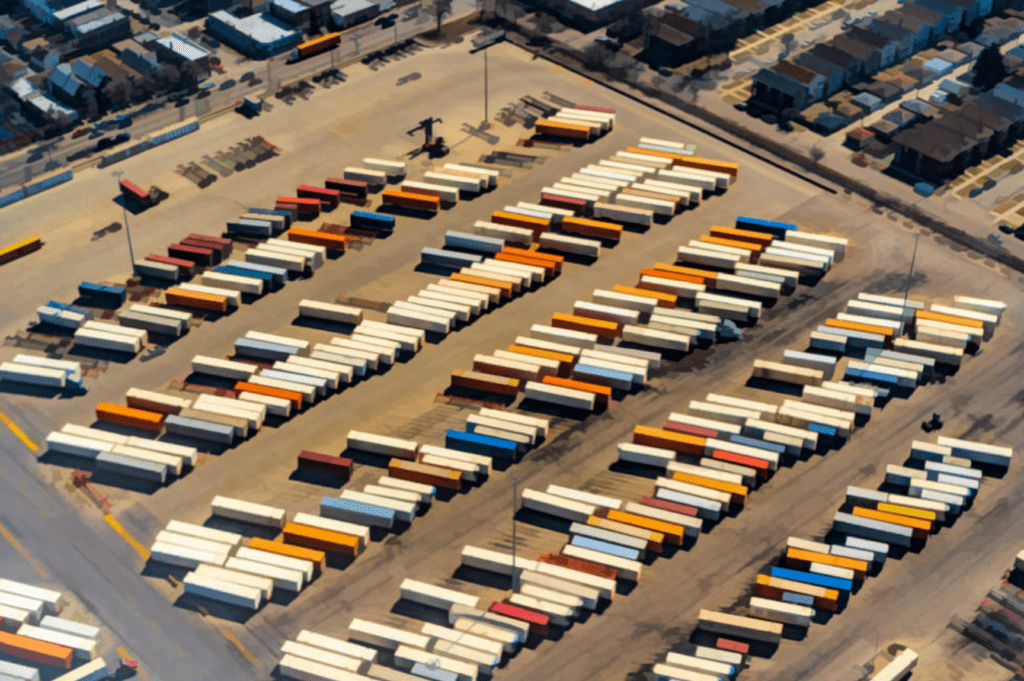
What Is On-Demand Warehousing? Flexible Storage Solutions for Modern Supply Chains
On-demand warehousing is a flexible logistics solution that allows businesses to rent warehouse space and services on a short-term or pay-as-you-go basis. Instead of locking into long-term contracts, companies can scale storage as needed—ideal for seasonal inventory, unexpected overflow, or launching into new markets. OLIMP connects businesses to a nationwide network of vetted, available warehouses, […]
Ready to streamline your warehousing needs?
Request a quote today and discover how OLIMP's tailored solutions can optimize your operations